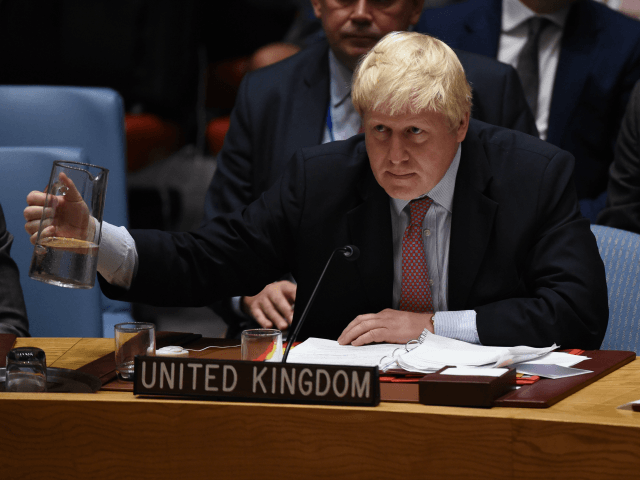(AFP) – Foreign Secretary Boris Johnson said Thursday that Britain plans to trigger Article 50, the formal process for leaving the European Union, early next year.
“We are talking to our European friends and partners in the expectation that by the early part of next year you will see an Article 50 letter. We will invoke that,” he told Britain’s Sky News television in New York.
Prime Minister Theresa May has previously said only that Britain would not trigger Article 50 before the end of this year.
Doing so would mark the formal start of a two-year negotiation period for Britain to leave the EU following its referendum vote in June to pull out of the 28-nation bloc.
However May’s Downing Street office distanced the government from Johnson’s comments.
“The government’s position has not changed: we will not trigger Article 50 before the end of 2016 and we are using this time to prepare for the negotiations,” a spokesman said.
And Johnson, who spearheaded the Leave campaign for Brexit, was dogged by claims from one of his own Foreign Office junior ministers that he only did so to position himself to take over as prime minister.
Europe minister Alan Duncan said he did not believe Johnson really wanted Britain to leave the EU at all.
“I’ve always thought that Boris’s wish was to lose by one (vote) so that he could be the heir apparent”, without having to deal with “clearing up all the mess”, Duncan told the BBC.
May succeeded fellow Remain-backer David Cameron as leader of the governing centre-right Conservatives, and therefore prime minister, in July.
– Trade-off ‘baloney’ –
In New York, Johnson indicated he did not think the Brexit negotiations would need the full two years to be completed.
“I don’t think we will actually necessarily need to spend a full two years but let’s see how we go,” he said.
Johnson also hit out at suggestions that Britain would have to continue to allow free movement of people with the EU if it wanted to maintain access to the European single market.
“They would have us believe that there is some automatic trade-off between what they call access to the single market and free movement. Complete baloney. Absolute baloney,” he said.
“The two things have nothing to do with each other. We should go for a jumbo free-trade deal and take back control of our immigration policy.”
And he insisted that even after Brexit, Britain would still play a role in pan-European defence and security matters.
“We will continue to be a participant in common European defence discussions, security, foreign policy, counter-terrorism, intelligence sharing and all that kind of thing,” he said.
Meanwhile in London, May was meeting with Martin Schulz, the president of the European Parliament, who urged her to trigger Article 50 as soon as possible.
“This period of preparation is valuable for all concerned and while we are going to leave the European Union, we are not leaving Europe,” said May as she welcomed him to her Downing Street office.
“And we want the EU to continue to be strong and have a close relationship with it, and I think that will be in both our interests.”
Before the meeting, Schulz said in a statement that the final deal between Britain and the EU needed to be good for all sides, while the four freedoms of the single market — goods, capital, services and persons — were all equally important.
“The European Parliament favours the earliest possible triggering of Article 50,” he said.

COMMENTS
Please let us know if you're having issues with commenting.